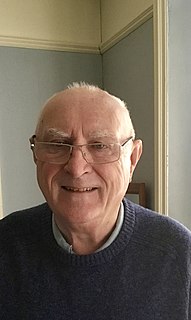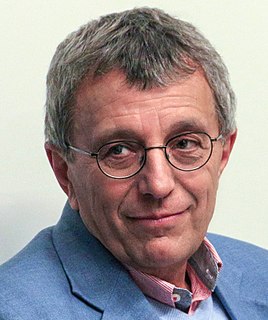Related Research Articles
International English is the concept of using the English language as a global means of communication similar to an international auxiliary language, and often refers to the movement towards an international standard for the language. Related and sometimes synonymous terms include: Global English, World English, Common English, Continental English, General English, Engas, and Globish. Sometimes, these terms refer to the actuality of the situation, where English is spoken and used in numerous dialects around the world. These terms may acknowledge the diversity and varieties of English spoken throughout the world.

English as a second or foreign language is the use of English by speakers with different native languages. Language education for people learning English may be known as English as a second language (ESL), English as a foreign language (EFL), English as an additional language (EAL), English as a New Language (ENL), or English for speakers of other languages (ESOL). The aspect in which ESL is taught is referred to as teaching English as a foreign language (TEFL), teaching English as a second language (TESL) or teaching English to speakers of other languages (TESOL). Technically, TEFL refers to English language teaching in a country where English is not the official language, TESL refers to teaching English to non-native English speakers in a native English-speaking country and TESOL covers both. In practice, however, each of these terms tends to be used more generically across the full field. TEFL is more widely used in the UK and TESL or TESOL in the US.
Communicative language teaching (CLT), or the communicative approach (CA) , is an approach to language teaching that emphasizes interaction as both the means and the ultimate goal of study.
Rod Ellis is a Kenneth W. Mildenberger Prize-winning British linguist. He is currently a research professor in the School of Education, at Curtin University in Perth, Australia. He is also a professor at Anaheim University, where he serves as the Vice president of academic affairs. Ellis is a visiting professor at Shanghai International Studies University as part of China’s Chang Jiang Scholars Program and an emeritus professor of the University of Auckland. He has also been elected as a fellow of the Royal Society of New Zealand.
Cambridge Assessment English or Cambridge English develops and produces Cambridge English Qualifications and the International English Language Testing System (IELTS). The organisation contributed to the development of the Common European Framework of Reference for Languages (CEFR), the standard used around the world to benchmark language skills, and its qualifications and tests are aligned with CEFR levels.
Henry George Widdowson is a British linguist and an authority in the field of applied linguistics and language teaching, specifically English language learning and teaching.
The ELTons are international awards given annually by the British Council that recognise and celebrate innovation in the field of English language teaching. They reward educational resources that help English language learners and teachers to achieve their goals using innovative content, methods or media. The ELTons date from 2003 and the 2018 sponsors of the awards are Cambridge English Language Assessment and IELTS. Applications are submitted by the end of November each year and they are judged by an independent panel of ELT experts, using the Delphi Technique. The shortlist is published in March and the winners announced at a ceremony in London in June. The 2018 awards were held in a new venue, Savoy Place, Institute of Engineering and Technology, London, UK.
Data-driven learning (DDL) is an approach to foreign language learning. Whereas most language learning is guided by teachers and textbooks, data-driven learning treats language as data and students as researchers undertaking guided discovery tasks. Underpinning this pedagogical approach is the data - information - knowledge paradigm. It is informed by a pattern-based approach to grammar and vocabulary, and a lexicogrammatical approach to language in general. Thus the basic task in DDL is to identify patterns at all levels of language. From their findings, foreign language students can see how an aspect of language is typically used, which in turn informs how they can use it in their own speaking and writing. Learning how to frame language questions and use the resources to obtain data and interpret it is fundamental to learner autonomy. When students arrive at their own conclusions through such procedures, they use their higher order thinking skills and are creating knowledge.
English for specific purposes (ESP) is a subset of English as a second or foreign language. It usually refers to teaching the English language to university students or people already in employment, with reference to the particular vocabulary and skills they need. As with any language taught for specific purposes, a given course of ESP will focus on one occupation or profession, such as Technical English, Scientific English, English for medical professionals, English for waiters, English for tourism, etc. Despite the seemingly limited focus, a course of ESP can have a wide-ranging impact, as is the case with Environmental English.
David Nunan is an Australian linguist who has focused on the teaching of English. He is the author of the ELT textbook series "Go For It!".
NNEST or non-native English-speaking teachers is an acronym that refers to the growing body of English language teachers who speak English as a foreign or second language. The term was coined to highlight the dichotomy between native English-speaking teachers (NEST) and non-native English-speaking teachers (NNEST).
Dogme language teaching is considered to be both a methodology and a movement. Dogme is a communicative approach to language teaching that encourages teaching without published textbooks and focuses instead on conversational communication among learners and teacher. It has its roots in an article by the language education author, Scott Thornbury. The Dogme approach is also referred to as "Dogme ELT", which reflects its origins in the ELT sector. Although Dogme language teaching gained its name from an analogy with the Dogme 95 film movement in which the directors, actors, and actresses commit a "vow of chastity" to minimize their reliance on special effects that may create unauthentic feelings from the viewers, the connection is not considered close.
Vivian James Cook was a British linguist who was Emeritus Professor of Applied Linguistics at Newcastle University. He was renowned for his work on second-language acquisition and second-language teaching, and for writing successful textbooks and popular books about linguistics. He worked on a number of topics such as bilingualism, EFL, first-language acquisition, second-language teaching, linguistics, and the English writing system. He published more than 20 books and 100 papers. He was founder and first President of the European Second Language Association (EuroSLA), and co-founder of the Oxford University Press journal Writing Systems Research. He died in December 2021, at the age of 81.
Ian Stephen Paul Nation is an internationally recognized scholar in the field of linguistics and teaching methodology.
Language pedagogy is the discipline concerned with the theories and techniques of teaching language. It has been described as a type of teaching wherein the teacher draws from his prior knowledge and actual experience in teaching language. The approach is distinguished from research-based methodologies.
The Cambridge English Teaching Framework is a professional development framework, designed by Cambridge English Language Assessment, which is used by English language teachers to self-assess and plan their own development.

Korea TESOL is the largest multicultural English teachers association in the Republic of Korea, organized as a nonprofit scholarly/professional society under the National Research Foundation of Korea and local tax laws since 1993.

Keith Johnson is a British linguist. He is currently an emeritus professor at the Department of Linguistics and English Language of Lancaster University, United Kingdom. His research focuses on applied linguistics with a special focus on second language acquisition and language teaching.
Sarah Jane Mercer is a British linguist. She is currently the head of the Department of English Language Teaching at the University of Graz, Austria. Her research focuses on applied linguistics, with a special focus on psycholinguistics from a Complex Dynamic Systems Theory approach.

Péter Medgyes is a professor emeritus at the School of English and American Studies of the Faculty of Humanities of Eötvös Loránd University.
References
- ↑ "ELT Catalogue". Longman-Pearson. Archived from the original on 2011-08-15. Retrieved 2011-03-28.
- ↑ "Catalogue: Methodology for Teachers". Macmillan English. Retrieved 30 April 2021.
{{cite web}}: CS1 maint: url-status (link) - ↑ "ELT Catalogue". Cambridge University Press. Archived from the original on 2012-04-30. Retrieved 2011-03-28.
- ↑ "ELTons: 2004 Award Winners". British Council Learning. Archived from the original on 2011-09-07. Retrieved 2011-03-28.
- ↑ "Cambridge English". Cambridge University Press.
- ↑ http://scottthornbury.wordpress.com/ A-Z of ELT
- ↑ http://itdi.pro International Teacher Development Institute
- ↑ Thornbury, Scott (17 July 2018). Grammar. Oxford University Press. OCLC 65467237.
- ↑ Thornbury, Scott; Slade, Diana (17 July 2018). Conversation: from description to pedagogy. Cambridge University Press. OCLC 70660096.
- ↑ Thornbury, Scott (17 July 2018). Natural grammar: [the keywords of English and how they work. Oxford University Press. OCLC 54547912.
- ↑ Archived copy. OCLC 660581320.
- ↑ Thornbury, Scott (17 July 1999). How to teach grammar. OCLC 48371328.
- ↑ Thornbury, Scott (17 July 1997). About language: tasks for teachers of English. Cambridge University Press. OCLC 35744372.
- ↑ Thornbury, Scott (February–March 2000). "A Dogma for EFL". IATEFL Issues (153): 2. Retrieved 2009-06-23.